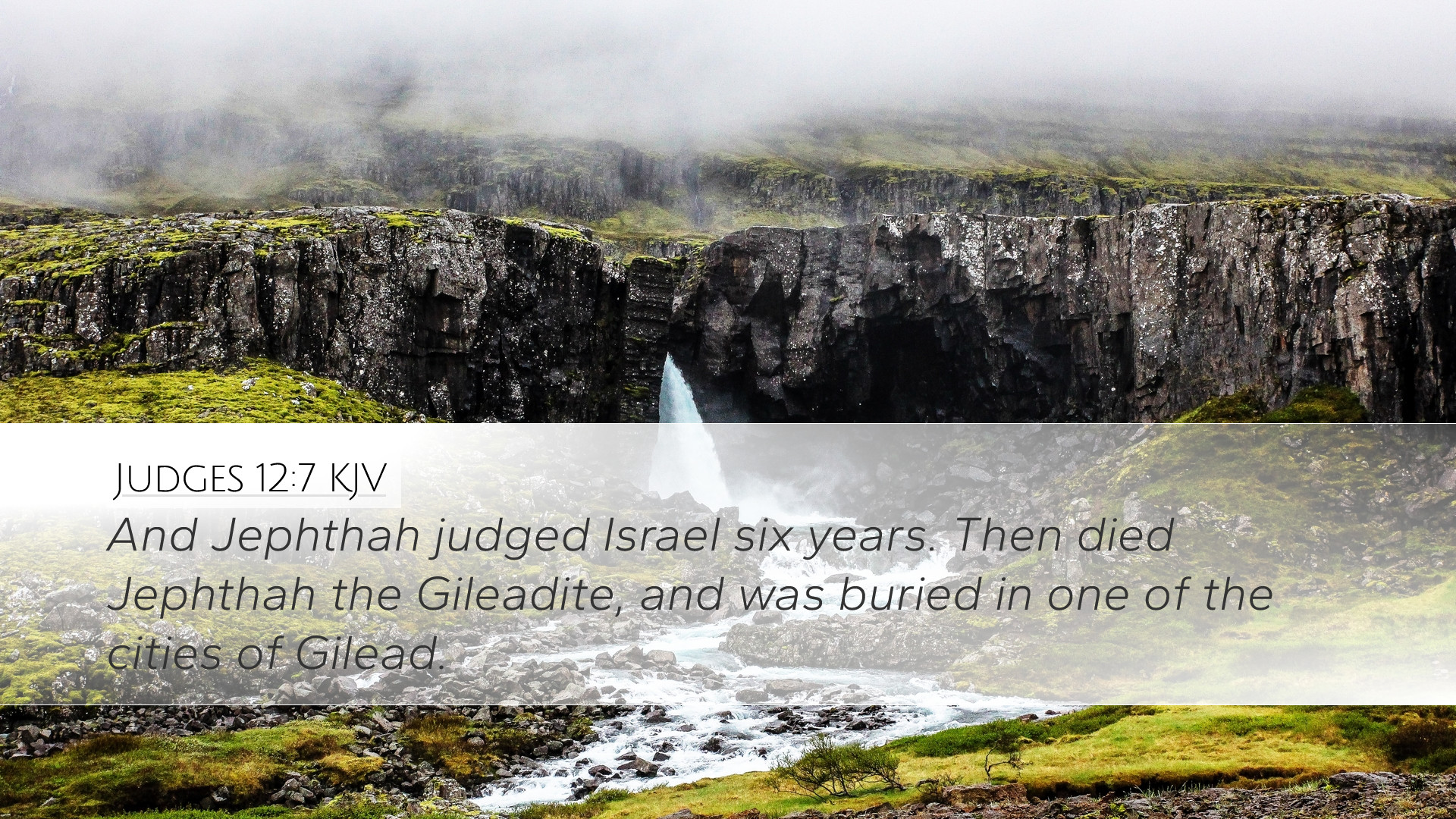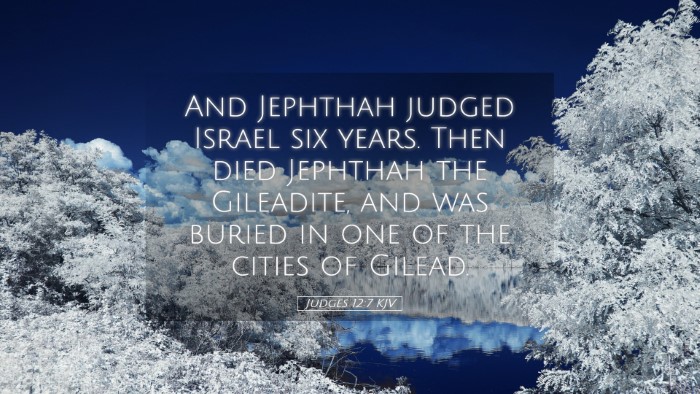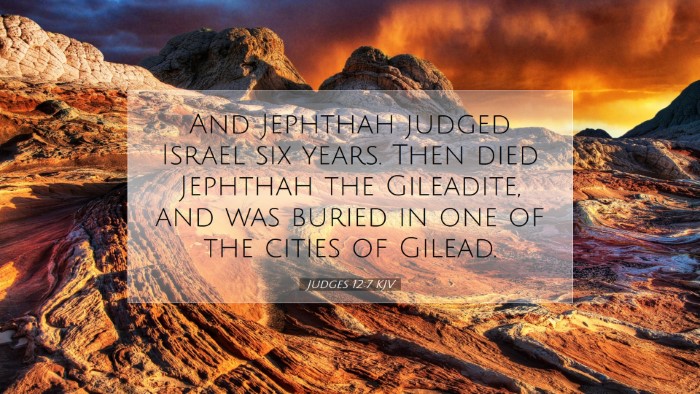Old Testament
Genesis Exodus Leviticus Numbers Deuteronomy Joshua Judges Ruth 1 Samuel 2 Samuel 1 Kings 2 Kings 1 Chronicles 2 Chronicles Ezra Nehemiah Esther Job Psalms Proverbs Ecclesiastes Song of Solomon Isaiah Jeremiah Lamentations Ezekiel Daniel Hosea Joel Amos Obadiah Jonah Micah Nahum Habakkuk Zephaniah Haggai Zechariah MalachiJudges 12:7
Judges 12:7 KJV
And Jephthah judged Israel six years. Then died Jephthah the Gileadite, and was buried in one of the cities of Gilead.
Judges 12:7 Bible Commentary
Bible Commentary on Judges 12:7
Verse: Judges 12:7 - "And Jephthah died, and was buried in one of the cities of Gilead."
Introduction
This verse concludes the narrative of Jephthah, a judge of Israel, whose life and leadership were marked by both triumphs and tragedies. In examining this verse, we gain insight into the character of Jephthah, the context of Israel's leadership at the time, and the implications of his life and death on the nation of Israel.
Contextual Background
Jephthah, a Gileadite, emerged as a leader during a tumultuous period for Israel, when they were caught in cycles of oppression and deliverance. His story, notably his vow concerning his daughter, brings forth themes of faith, sacrifice, and the consequences of rash promises. This verse serves not only as an epilogue to his life but also as a reflection on the legacy of a judge.
Commentary Insights
-
Matthew Henry's Commentary:
Henry notes that Jephthah's death signifies the end of a significant figure who, despite his flaws, played a crucial role as a military leader. His burial in Gilead symbolizes a return to his roots and reflects both respect and recognition from his people. Henry emphasizes the importance of leaders being remembered for their contributions amid the complexities of their moral decisions.
-
Albert Barnes' Notes:
Barnes highlights the implication of Jephthah’s death for the children of Israel. He suggests that while Jephthah was indeed a deliverer, his legacy is marred by the implications of his vow, hinting at the pitfalls of leadership under personal vows and oaths. Barnes points out that the narrative serves as a warning of the consequences of taking matters into one’s own hands without seeking divine guidance.
-
Adam Clarke's Commentary:
Clarke draws attention to the notion of Jephthah’s burial and its significance within the Gilead community. His analysis underscores how Jephthah was a man of valor who stood out during a time of calamity, yet also emphasizes the tragic elements of his vow. Clarke discusses the overall moral fabric of the time, indicating that Jephthah's leadership was contextualized by the broader failure of Israel to remain faithful to God.
Theological Themes
-
Leadership and Responsibility:
Jephthah's life exemplifies the weight of leadership and the responsibilities that accompany it. His choices demonstrate how even a strong leader must navigate the moral complexities and ramifications of their decisions, impacting their legacy.
-
The Consequences of Vows:
Jephthah's vow and its tragic outcome raise significant theological questions regarding the nature of vows. The implications suggest that believers must tread carefully when making promises, understanding that such commitments may lead to unforeseen consequences.
-
Faith Amidst Flaws:
Jephthah is a complex figure who embodies both faith and failure. Despite his shortcomings, he is recognized for his faith in delivering Israel. This theme of redemption through flawed individuals resonates throughout Scripture, highlighting God’s ability to use imperfect people to fulfill His will.
Conclusion
Judges 12:7 encapsulates the culmination of Jephthah's life—his death marking the end of an era of struggle for the Israelites under his leadership. As pastors, students, and theologians reflect upon this verse and the commentaries surrounding it, they are invited to consider the profound themes of leadership, sacrifice, the weight of promises, and the redemptive narratives woven through the lives of biblical figures. Jephthah's story reminds us that while leaders may falter, their lives can still serve as pivotal lessons for faith and perseverance.


